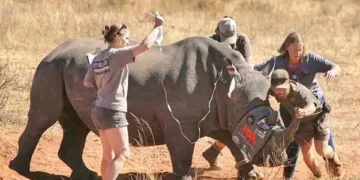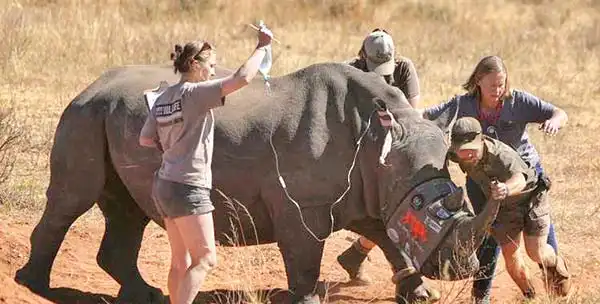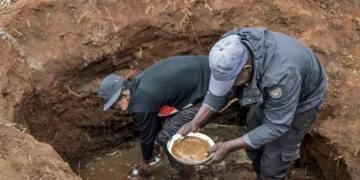Blitz Bureau
SOUTH African scientists have launched an anti-poaching campaign in which rhinos’ horns will be injected with a radioactive material. The group, from the University of the Witwatersrand, said the process is harmless to rhinos but will allow customs officers to detect smuggled horns as they’re transported across the world.
South Africa has the largest rhino population in the world, and hundreds of the animals are poached there every year. The university’s venture, called the Rhisotope Project, cost around £220,000 ($290,000) and involved six years of research and testing. “At least one animal a day is still being poached,” James Larkin, a Wits University professor involved in the project, told the BBC.
“I think the figures are only going to go one way if we don’t watch out…. this is a significant tool to help reduce the numbers of poaching, because we’re proactive rather than being reactive.” Prof Larkin added that the pilot study, which involved 20 rhinos, confirmed that the radioactive material was “completely safe” for the animals.
The Wits University researchers, who collaborated with the International Atomic Energy Agency, found that horns could even be detected inside full 40-foot (six-metre) shipping containers. Each year since 2021, more than 400 rhinos have been poached in South Africa, conservation charity Save the Rhino says.
The horns of African rhinos are often exported to Asian markets where they are used in traditional medicine and also seen as a status symbol. White rhinos are considered threatened, while black rhinos are critically endangered.
Private wildlife park owners and national conservation authorities have been advised to have their rhinos injected.


























